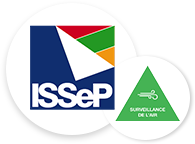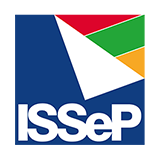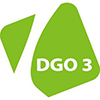The legal framework in Belgium
From Europe to Member States...
The pollution regulations (thresholds, limit values, etc.) are defined at the European level in directives (2008/50/CE and 2004/107/CE). These directives set out measures aimed at:
-
Defining and establishing objectives for ambient air quality in order to avoid, prevent or reduce harmful effects on human health and the environment as a whole.
-
Assessing the ambient air quality in Member States on the basis of common methods and criteria.
-
Obtaining information on ambient air quality in order to help combat air pollution and nuisance and to monitor long-term trends and improvements resulting from national and community measures.
-
Ensuring that such information on ambient air quality is made available to the public.
-
Maintaining ambient air quality where it is good and improving it in other cases.
These European directives are then translated into Walloon law (indeed, this falls under regional authority in Belgium), namely laws and decrees.
Some useful definitions
The limit value is a level to be reached within a given period and not to be exceeded, and fixed on the basis of scientific knowledge in order to avoid, prevent or reduce the harmful effects on human health or on the environment as a whole.
The target value is a level to be achieved, as far as possible, within a given time frame, and set in order to avoid, prevent or reduce the harmful effects of pollution on human health or the environment as a whole.
Thequality objective (or long-term objective for the ozone) is a level to be achieved in the long term and to be maintained, except where this is not achievable by proportionate measures, in order to ensure effective protection of human health and the environment against pollution. (Source: Article R.221-1 of the Environmental Code).
A pollution episode corresponds to a period when the concentrations of pollutants in the air do not meet or risk not respecting regulatory levels, according to predefined criteria (percentage of surface area of an area or percentage of population affected, regulatory level crossed, duration of the episode, etc.).
The level of information and recommendation is the level beyond which short-term exposure presents a risk to the human health of particularly sensitive groups within the population and which makes it necessary to issue immediate and adequate information to these groups, as well as recommendations for reducing certain emissions.
The alert level is the level beyond which a short-term exposure presents a risk to the health of the entire population or a risk for environmental degradation, justifying the intervention of emergency measures.
Table of regulatory ambient air values according to European directives 2008/50/EC and 2004/107/EC
|
Limit value and averaging period
|
Target value |
Information threshold |
Alert threshold |
Protection of vegetation |
|
|
NO2 |
Calendar year 1 hour |
1 hour |
calendar year |
||
|
SO2 |
1 day 1 hour |
1 hour |
calendar year |
||
|
PM10 |
calendar year
1 day |
||||
|
PM2.5 |
calendar year 25 µg/m³ calendar year |
||||
|
O3 |
Protection of health, target value: not to be exceeded on more than 25 d per year |
1 hour |
1 hour |
||
|
|
Protection of vegetation Long term objective: 6000 µg/m3.h AOT 40* |
|
|
||
|
CO |
En moyenne sur 8 heures |
||||
|
C6H6 |
calendar year |
||||
|
Pb |
calendar year |
||||
|
As |
calendar year |
||||
|
Cd |
calendar year |
||||
|
Ni |
calendar year |
||||
|
B(a)p |
|
calendar year |
*AOT 40 : Accumulated exposure Over Threshold 40 ppb
|
WHO air quality guidelines (AQG - 2021) |
|
|
NO2 |
200 µg/m3 1 hour 10 µg/m3 1 year |
|
SO2 |
40 µg/m3 1 day (not to be exceeded on more than 3 à 4 d/year) |
|
PM10 |
45 µg/m3 1 day (not to be exceeded on more than 3 à 4 d/year) 15 µg/m³ 1 year |
|
PM2.5 |
15 µg/m3 1 day (not to be exceeded on more than 3 à 4 d/year) 5 µg/m3 1 year |
|
O3 |
100 µg/m3 maximal daily 8h mean (not to be exceeded on more than 3 à 4 d/year) |
|
CO |
35 mg/m3 1 hour 10 mg/m3 maximal daily 8h mean (not to be exceeded on more than 3 à 4 d/year) 4 mg/m³ 1 day
|
|
C6H6 |
6 X 10-6 UR Vie (µg/m3)-1 |
|
Pb |
500 ng/m3 1 year |
|
As |
1.5 10-6 UR Vie (ng/m³)-1 |
|
Cd |
5 ng/m³ 1 year |
|
Ni |
3.8 10-4 UR Vie (ng/m³)-1 |
|
B(a)p |
8.7 X 10-5 UR Vie (ng/m³)-1 |
Find out more : https://www.who.int/fr/news-room/fact-sheets/detail/ambient-(outdoor)-air-quality-and-health







